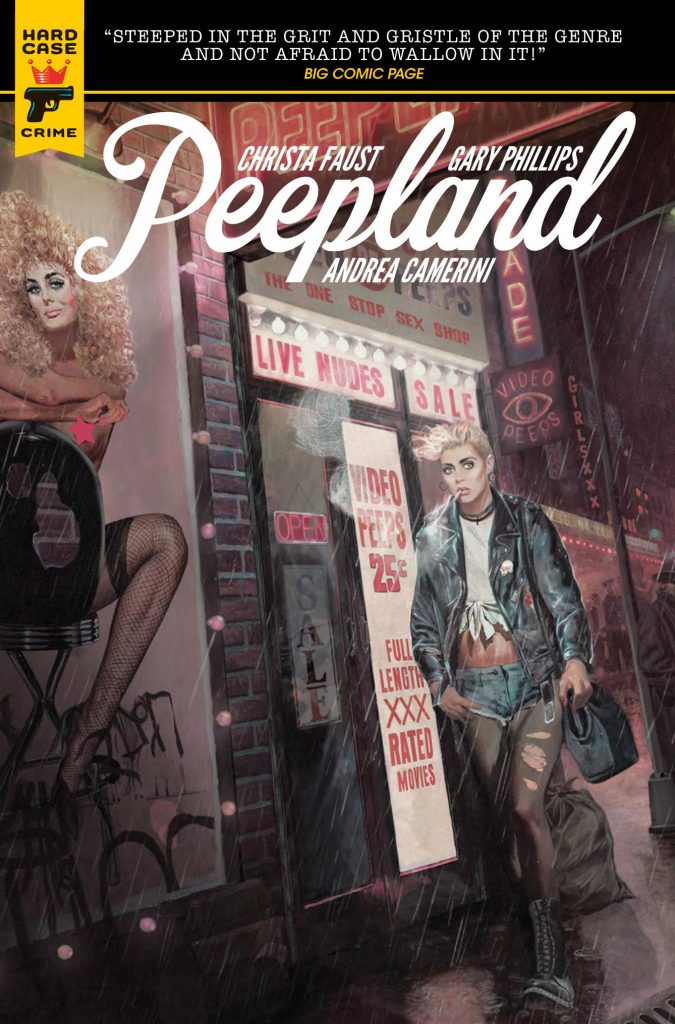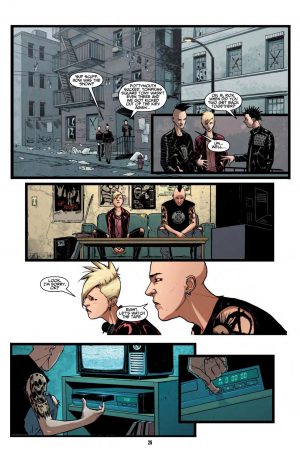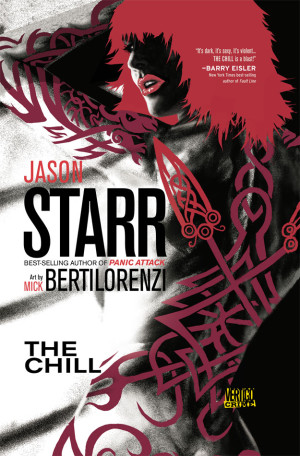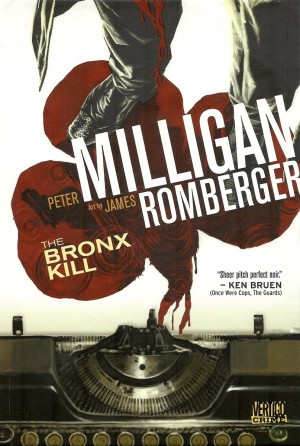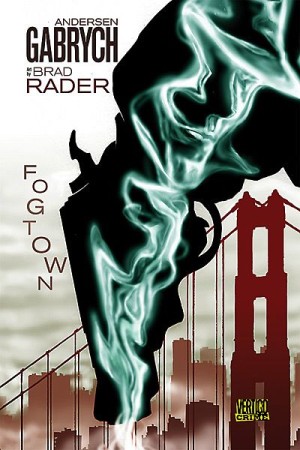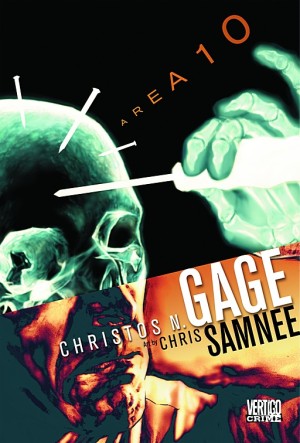Review by Ian Keogh
Roxy works in a New York peep show. Pay some money and you can see her naked behind the glass in a private booth. Pay her some more, and she’ll put on a show. She’s just finished one when Dick Durbin drops by her booth and hides a video tape. He’s being chased, and five minutes later he’s dead. Needless to say, the video suddenly becomes a much sought after item, and those using it for various purposes soon end up dead.
In 1986 Times Square was still the notoriously sleazy location now long distant, and Andrea Camerini brings the area to life so faithfully you can almost smell what needs to be wiped off the booth windows. He’s very much influenced by Howard Chaykin, which is no bad thing, but hasn’t quite got Chaykin’s finesse for faces and there’s sometimes a posed rigidity to the figures. The enthusiastically created backgrounds go a long way to compensate.
Over the opening chapter very much will be predictable to anyone who’s read just a few crime dramas, but hit the second, and co writers Christa Faust and Gary Phillips begin to inject the originality. This is via moving around what proves to be an ensemble cast, all with one problem or another, and those working at Peepland with more than most otherwise they’d not be there in the first place. The desperation of the disenfranchised is continually reinforced, and eventually that video tape appears to be a route out. At first a parallel plot of a group of teenagers carrying out robberies seems to have little connection, but that also feeds into a group of people struggling against the odds. You know it’s not going to end well for some of them, it’s just a question of who.
As part of their period immersion, the writers are free with the unenlightened language and derogatory references. It could have been avoided, but afterwords by both Faust and Phillips indicate their experiences of New York in 1986, and these contextualise the use. Surely also, it’s far more civic minded to be upset about a climate where bigots aren’t even remarked on than the language they use, and sanitising that is doing everyone a disservice.
In the spirit of keeping true to the times and location, there are no happy endings in Peepland, just survival to undergo another round in the future, and this bleak atmosphere sustains a deliberately sordid crime drama to the end.
